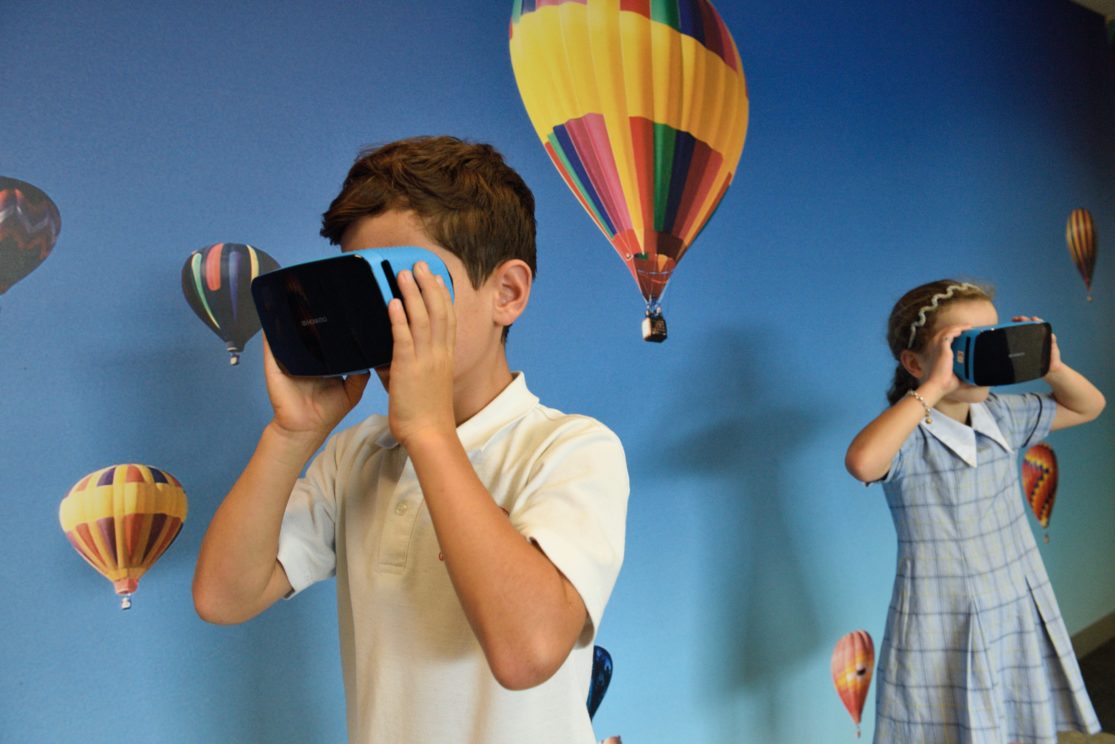Do well by doing good has emerged as a significant marketing mandate for companies and corporations of all sizes, across the country, under the banner of corporate social responsibility (CSR). CSR initiatives are gaining traction because they can generate both goodwill and revenue opportunities.
As an educator, I am pleased to see that businesses of all sizes are increasingly involved in CSR campaigns that target the classroom. In contrast to being motivated by self-interest, businesses pursuing CSR are committed to ensuring that students have access to a first-rate education. They know that good schools and a good education create a more healthy, more civil, and more innovative community and society. Local businesses are discovering how CSR opens up unique avenues to expand their branding by underwriting study guides and other classroom learning tools.
CSR programs can help teachers foster more than just the academic skills of students. Today’s classrooms find teachers joining with local businesses to encourage community involvement. Local business-funded curriculum materials are helping students develop 21st century learning abilities such as creativity, collaboration, critical thinking, and communication, which will help them throughout their careers. CSR initiatives are helping students appreciate the importance of combining social awareness with entrepreneurship and providing them with experience and skills they can take with them into the workforce.

The quintessential “kid at a lemonade stand” taught us brick-and-mortar business essentials with charming simplicity. What is the newer, tech-savvy generation capable of learning?
School systems—particularly those in lower-income communities—are challenged by lack of adequate financial resources necessary to introduce advanced learning technologies into their classrooms. Increased spending on education leads to better student outcomes. When school systems are more equitably funded, student achievement levels increase. Lack of proper funding impacts instructional quality.
CSR outreach is coming to the aid of public schools and school systems to compensate for declining budgets by working with local businesses to accept financial support for classroom needs and curriculum materials. As school-business partnerships continue to increase, CSR programs become more acceptable to school systems. Conflicting opinions about corporate involvement in local education are fading as schools opt to join with local businesses for a wide array of sponsored initiatives.
While digital technology has proven an effective learning medium for the classroom, it is also fast becoming an important new platform for CSR. From websites to in-app messaging and logo incorporation, digital classroom tools represent the next generation in CSR for schools and businesses paving the way for unprecedented opportunities for integration.
The Benefits of EdTech
A fully integrated European-based EdTech company that recently entered the U.S., BOOKR Kids has introduced several multimedia learning tools for both classroom and home that allow for unprecedented student interactivity. Because digital learning tools are demonstrating a measurable impact on performance, teachers utilize them to engage and encourage their students.
I co-founded the company with a mission to create curriculum materials for teachers that employ today’s advanced digital technologies. However, we have discovered it necessary to take on another role—helping educators find ways in which advanced technology learning can be brought into classrooms that require support.

Instilling a lifelong love of reading is among our first most critical objectives—and a historic priority among educators. But imagine homes where books are all but invisible.
BOOKr Class, an English as a second language (ESL) app, is among our digital learning apps and features a library containing hundreds of fully animated and gamified ebooks. Joining forces with businesses that employ immigrants, we are successfully making this app accessible to students in need free of charge. Working together with European telecommunications giant Telekom, we created a digital book series that shares the explores the world of a young boy who lives with autism. Joining forces with Unilever, we completed an award-winning digitized curriculum focused on healthy eating and conscious decisions.
Nonprofits also are finding that CSR efforts that support schools can bolster their own organizational funding as demonstrated by our collaboration with the Human Rights Foundation to co-produce children’s adventure stories aimed at enhancing mutual respect and understanding.
School-Business Partnerships for Long-Term Benefits
Beyond the classroom, CSR can also translate to programs that allow students to experience the workplace first-hand. In addition, CSR involvement finds local businesses getting involved in school career days, sending their senior executives into classrooms to share in their real-world business experiences, offering field trips to their company headquarters, endowing scholarships, providing internships for students, printing company-branded, achievement-based diplomas, providing summer employment opportunities for teachers, and even serving on school advisory boards. To highlight their efforts, companies can issue press releases to local media announcing their various CSR initiatives with schools and teachers.

How would your business impact the creative and dynamic environments of the world’s education systems?
School-business partnerships bring meaningful opportunities for all involved—students, teachers, businesses, and community as they develop future employees and consumers and promote understanding and positive working relationships between the business and education communities.
When local businesses get involved with their community’s schools, they can increase the resources available to the classroom, enhance the education of students, aid teachers, demonstrate how skills are applied in the workplace, and connect the relevancy of academics and business.
Dorka Horvath is the CEO and Co-Founder of BOOKR Kids, an award-winning European-based producer and distributor of digital learning tools for schools and homes worldwide.














































